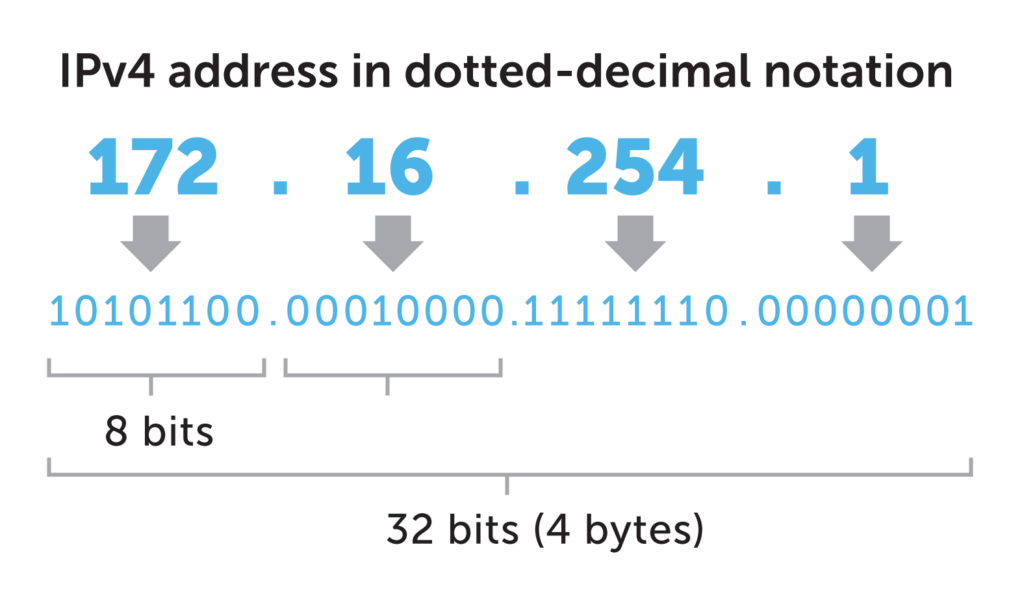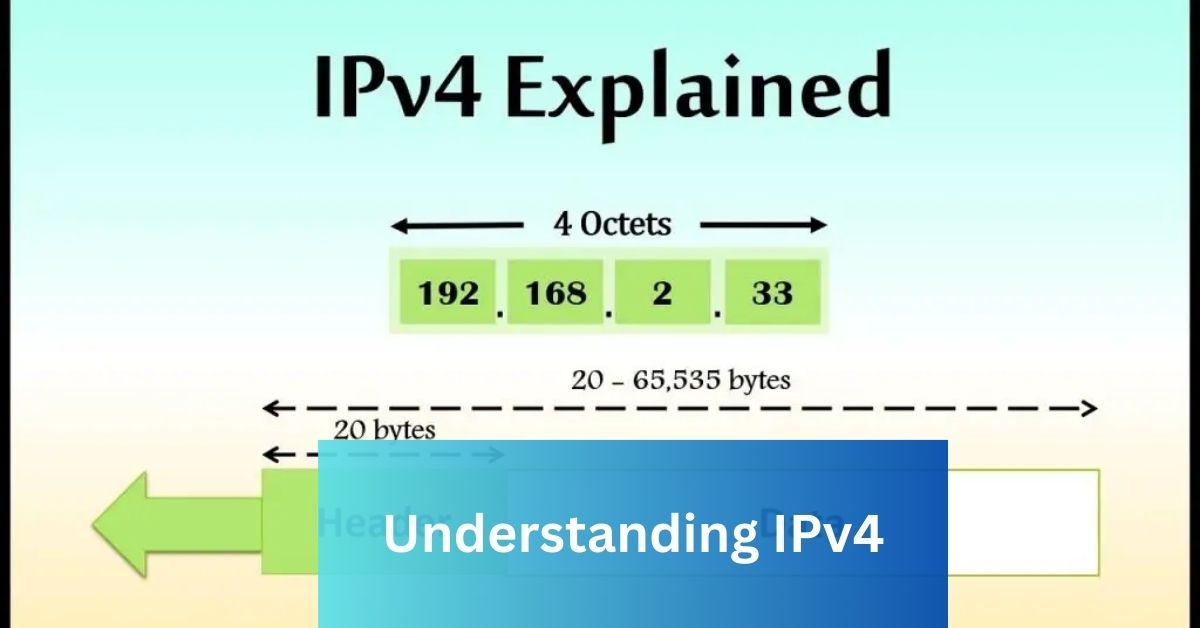The internet, as we know it, operates on a complex system of protocols and technologies. One of the fundamental pillars of this digital infrastructure is IPv4, or Internet Protocol version 4.
Understanding IPv4 is crucial for anyone navigating the intricacies of networking and internet communication.
In this article, we delve into the comprehensive guide provided by https://acortaz.eu/la-utilidad-de-ipv4-guia-completa/, exploring the basics, utilities, limitations, and the transition to IPv6.
What is IPv4?
IPv4, short for Internet Protocol version 4, is a widely used protocol for identifying and routing data packets across networks.

It assigns unique numerical addresses to devices connected to the internet, facilitating communication between them.IPv4 addresses are represented as a series of four numbers separated by dots, such as 192.168.1.1.
Importance of Understanding IPv4:
Understanding IPv4 is essential for various reasons. Firstly, it provides the foundation for internet communication, allowing devices to transmit and receive data seamlessly. Secondly, as the primary protocol used on the internet, IPv4 forms the basis for networking infrastructure worldwide.
Lastly, with the exhaustion of IPv4 addresses and the transition to IPv6 underway, comprehending IPv4 is crucial for navigating the evolving landscape of internet protocols.
Also Read: From Idea to Impact: Easy Tips for Entrepreneurs in the USA
Key Features of https://acortaz.eu/la-utilidad-de-ipv4-guia-completa/
IPv4 boasts several key features that contribute to its widespread adoption and longevity:
- Simplicity: IPv4 addresses are easy to understand and work with, consisting of a series of four numbers separated by dots (e.g., 192.168.1.1).
- Scalability: IPv4 supports a large number of devices, making it suitable for accommodating the growing demand for internet-connected devices.
- Compatibility: IPv4 is compatible with existing networking infrastructure, ensuring seamless integration into diverse environments.
Utilities of IPv4 https://acortaz.eu/la-utilidad-de-ipv4-guia-completa/
IPv4 serves a multitude of purposes in the realm of internet communication and networking:
- Internet Connectivity: IPv4 enables access to a wide range of online resources, including websites, email services, and online applications.
- Device Communication: IPv4 facilitates communication between devices within local area networks (LANs) and wide area networks (WANs), allowing for seamless data exchange.
- Interoperability: IPv4 ensures compatibility with existing devices and networks, enabling seamless integration into diverse environments.
- Application Support: IPv4 provides the foundation for various applications, including online gaming, video streaming, voice over IP (VoIP), and more.
Limitations of IPv4:
Despite its widespread adoption, IPv4 has several limitations that impact its scalability and security:

- Limited Address Space: IPv4 addresses are finite, with approximately 4.3 billion unique addresses available. The rapid growth of internet-connected devices has led to address exhaustion, necessitating the transition to IPv6.
- Lack of Security: IPv4 lacks built-in security mechanisms, making it vulnerable to various cyber threats such as denial-of-service (DoS) attacks and IP spoofing.
- Routing Inefficiency: The header size of IPv4 packets is relatively large, leading to inefficiencies in routing and network utilization.
IPv6: The Next Generation
In response to the limitations of IPv4, IPv6, or Internet Protocol version 6, has emerged as the next generation protocol:
- Larger Address Space: IPv6 significantly expands the address space, accommodating an almost unlimited number of devices and addressing the issue of address exhaustion.
- Enhanced Security: IPv6 incorporates built-in security features, such as IPsec, to improve data integrity and confidentiality.
- Improved Routing: IPv6 simplifies packet headers and eliminates the need for fragmentation, leading to more efficient routing and network performance.
Additional Resources
For those seeking further information on IPv4 and IPv6, a wealth of resources is available:
- Websites, Tutorials, and Documents: Numerous online resources offer in-depth tutorials, guides, and documentation on IPv4 and IPv6, providing valuable insights into their functionalities and implementation.
- Forums and Communities: Online forums and communities dedicated to networking and internet protocols are valuable platforms for sharing knowledge, seeking assistance, and engaging with experts in the field.
Also Read: Claiming Your Share: A Guide to Participating in OKX Giveaways
Conclusion:
In conclusion,https://acortaz.eu/la-utilidad-de-ipv4-guia-completa/ understanding IPv4 is essential for navigating the complexities of internet communication and networking. Despite its limitations, IPv4 continues to play a crucial role in facilitating connectivity and data exchange across networks.
However, with the depletion of IPv4 addresses and the emergence of IPv6, the transition to the next generation protocol is inevitable.
By familiarizing themselves with IPv4 fundamentals and staying informed about the advancements in internet protocols, individuals and organizations can prepare for the future of networking and ensure a seamless transition to IPv6.
FAQ’s:
1. What is an IPv4 address?
An IPv4 address is a numerical label assigned to devices connected to a network, allowing them to communicate with each other over the internet.
2. How many IPv4 addresses are there?
IPv4 addresses consist of 32 bits, resulting in approximately 4.3 billion unique addresses available for allocation.
3. Why is IPv4 address exhaustion a concern?
The rapid growth of internet-connected devices has led to the depletion of available IPv4 addresses, necessitating the transition to IPv6 for continued expansion.
4. What are private IPv4 addresses?
Private IPv4 addresses are reserved for use within local networks and are not routable on the internet, helping to conserve public IPv4 address space.
5. How does IPv4 routing work?
IPv4 routing involves forwarding data packets from a source device to a destination device based on routing tables maintained by routers in the network.
6. What is IPv6 and how does it differ from IPv4?
IPv6 is the next generation internet protocol designed to address the limitations of IPv4, offering a significantly larger address space and enhanced security features.
7. Is IPv4 still relevant in the age of IPv6?
Yes, IPv4 remains in widespread use, but the transition to IPv6 is underway to accommodate the growing demand for internet-connected devices and address space limitations.
